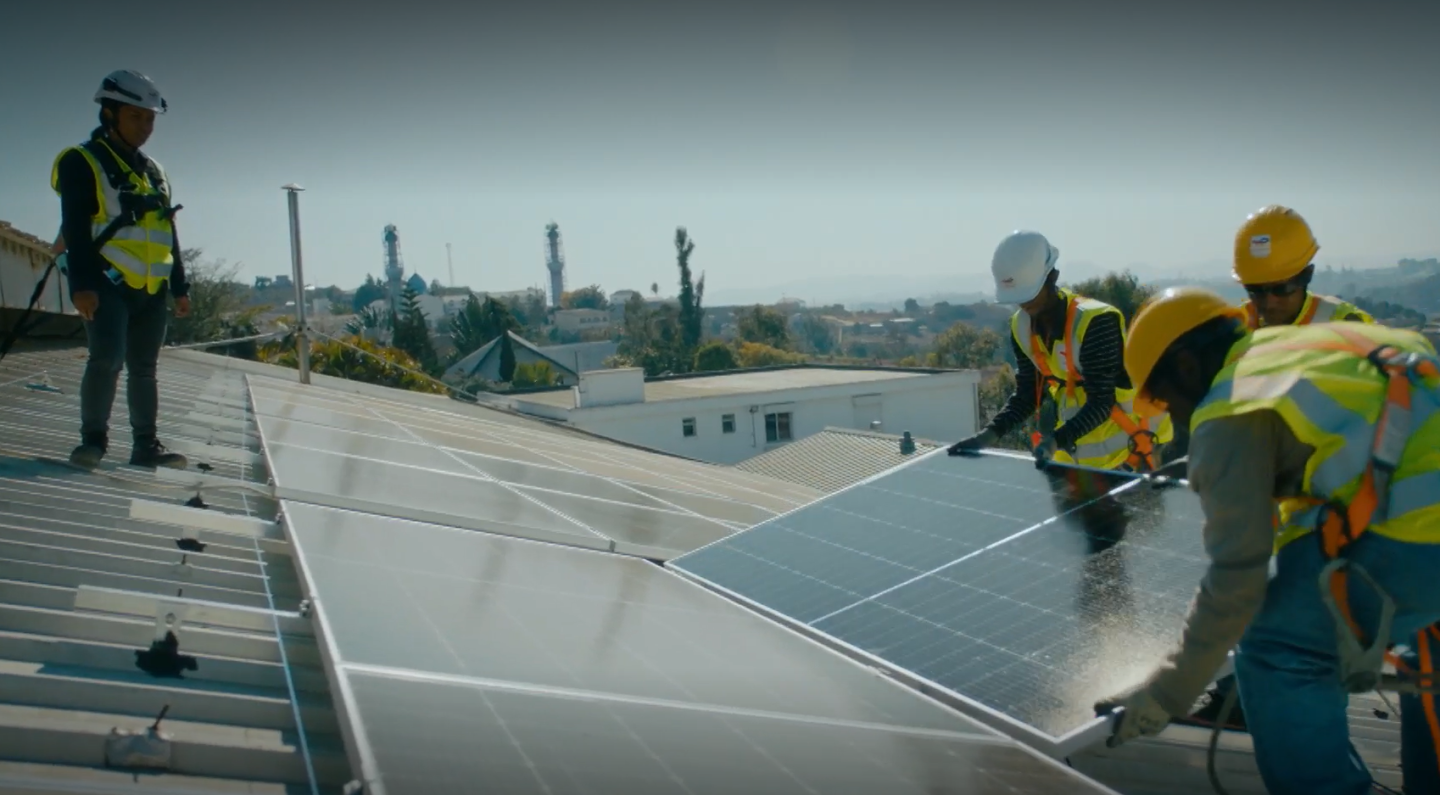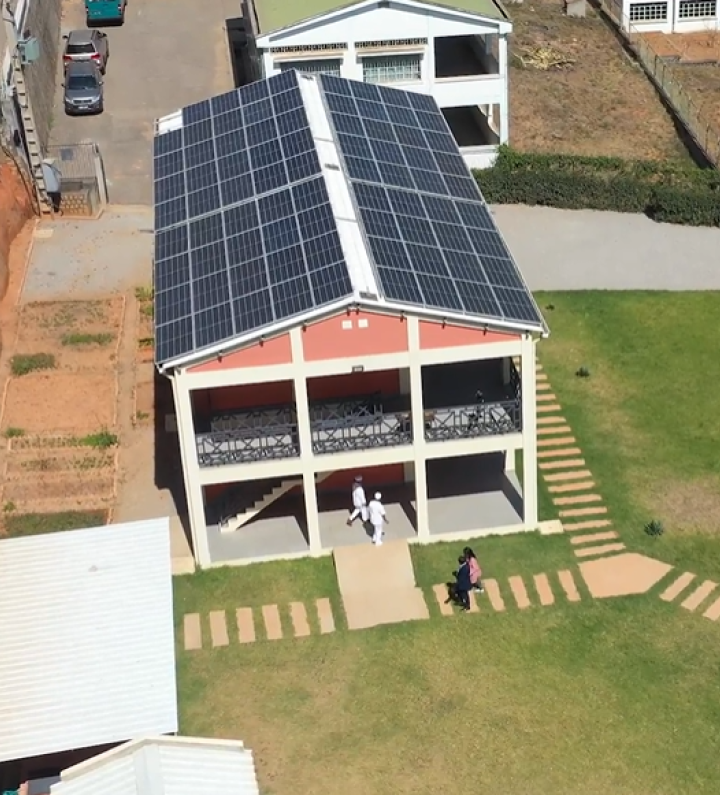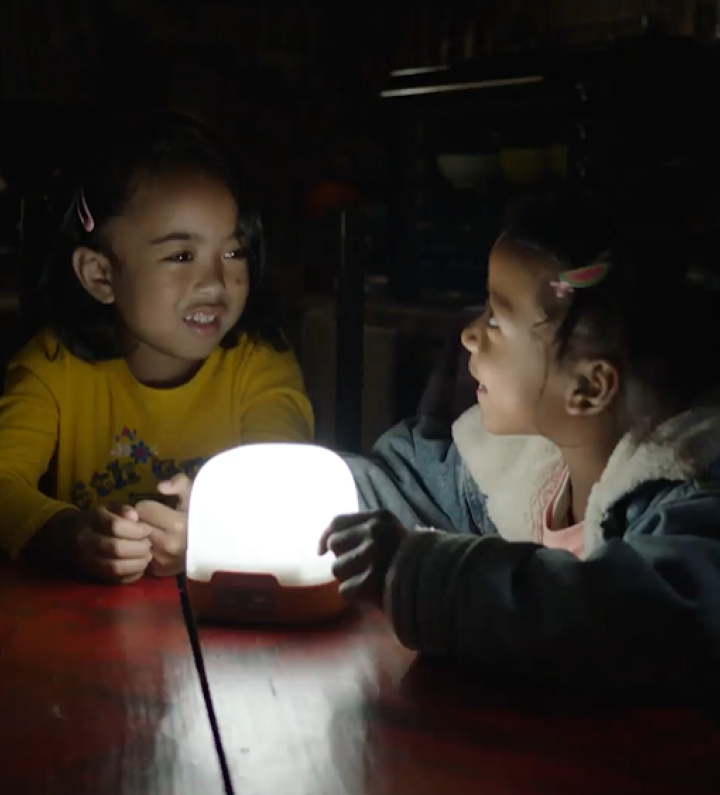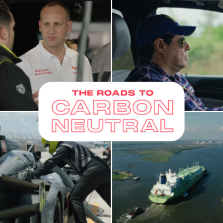The Roads to Carbon Neutral – Episode 6 – Sunrise in Madagascar
The Roads to Carbon Neutral - Episode 6
Sunrise in Madagascar
The Roads to Carbon Neutral
The third season of The Roads to Carbon Neutral program, in partnership with CNBC Catalyst, shares an inspiring and optimistic view of TotalEnergies’ role in our sustainable future globally through powerful, human-led and on-the-ground stories.
Throughout the series' eight episodes, discover the solutions and innovations making the transition to low-carbon energy a reality and helping us achieve a carbon-neutral future(1).
For this sixth episode, we are heading to Madagascar in the company of Toki and Holi. From the photovoltaic installations of a local chocolate factory to the solar lamps used by the local population, discover how we are providing electricity that is ever more affordable, clean, reliable and accessible to as many people as possible by harnessing the power of the sun.
Toki Razanakolona, Solar Sales Manager: A coffee for you.
Holi Samimamy, Solar Construction Manager: Thank you.
Toki Razanakolona: We have a big day today and the sun is shining for us.
Holi Samimamy: Honestly, Madagascar is a magnificent island, famous for its tropical forests and endemic animals.
Toki Razanakolona: Yes, but in Madagascar, only 25% of the population has access to electricity. And even then, grid quality is unreliable.
Holi Samimamy: Madagascar is one of the sunniest countries in the world, and that's why solar energy is an effective alternative.
Toki Razanakolona: And thanks to solar energy, we're able to contribute to the electrification of Madagascar, which also helps to improve the living conditions of the population. Here in Madagascar, we’ve been promoting the use of solar power for several years now.
Holi Samimamy: Some of the places we go to are surprising.
Josia Rahagananandrasana, Factory Superviso: It is important to note that our chocolate is 100% made in Madagascar. Our cocoa comes from the Sambirano valley and the Ambanja region. It takes us around five days to create each flavour of chocolate in the factory.
Toki Razanakolona: We listen to our customers, their expectations and their needs and how we can best help them. And then there's Holi, our expertwho comes in to make sure that solar panels are perfectly installed and working at full capacity.
Holi Samimamy: At the end of the installation, 50% of the Menakao plant's energy needs will be covered by solar power.
Toki Razanakolona: Solar energy can also offer new opportunities for future generations.
Holi Samimamy: Good morning, everybody.
Toki Razanakolona: Good morning.
Holi Samimamy: More food?
Toki Razanakolona: Fortunately, I still have room in my tummy. The École de Felix Foundation is an institute of culinary excellence for young people in vulnerable situations to receive free training that is recognized by the State of Madagascar.
Lalatiana Randrihnasolo, Culinary Instructor: The training lasts ten months, and often, right away ends with a job.
Candy Nomeniavo: I learned all about cooking here. I could be a saleswoman or open a pastry shop or work for a company. There are many possibilities.
Toki Razanakolona: Thanks to the solar installation, they can now keep food fresh for over 15 days, and also guarantee continuity of teaching even in the event of a power outage.
Holi Samimamy: Access to energy is improving. We are seeing more and more investment in renewable solutions such as hydropower and, of course, solar power.
Toki Razanakolona: We are proud that our work is contributing to this transition.
Holi Samimamy: A large part of the population has no access to electricity. Here, solar energy has a simple but effective impact.
Toki Razanakolona: Solar "Sunshine" lamps are efficient, safer, less dangerous and less polluting than oil lamps and candles.
Holi Samimamy: Are you satisfied with your solar installation?
Street vendor: Yes, the light allows me to work at night and receive lots of customers.
Holi Samimamy: Even the smallest sunshine lamps are far brighter.
Toki Razanakolona: Madagascar has great challenges ahead, but we are also blessed with the greatest resource of all - the sun.
Holi Samimamy: Our country is beautiful. I hope that Toki and I, in our small way, can help protect it and facilitate access to cleaner energy.
[TotalEnergies logo]
Thanks to solar energy, we're helping bring electricity to Madagascar and improve living conditions for the population. We're listening to our customers' needs and expectations to help them as best we can.Tokiniaina Razanakolona, Solar Sales Manager
Distributed solar power: a low-carbon energy source for our BtoB customers
TotalEnergies is focused on its ambition of becoming one of the world's top five producers of electricity from solar or wind power by 2030. Developing distributed solar generation facilities at our customers' sites is one way of achieving this aim.
Distributed solar generation solutions allow us to provide our customers with a cleaner and more affordable source of electricity. Solar photovoltaic panels are installed on unused areas, such as roofs, parking lots or unused property. By installing energy generation solutions as close as possible to where the electricity is used, we are helping reduce our customers' carbon footprint while combating unequal access to the grid.
Powering development with solar energy
-
400distributed solar power generation sites in 20 countries
-
500 MWof solar generation capacities at our BtoB customers' sites in 2022
-
100 GWour target for gross renewable electricity generation capacity by 2030
Making energy accessible and affordable for everyone
In emerging countries, access to energy is a prerequisite for economic and social development. Even today, 675 million people have no access to energy, including 567 million in sub-Saharan Africa(2). As such, we are committed to providing solutions that are ever more affordable, clean, reliable and accessible to the widest number of people.
In 2010, we launched our access to energy program, and since 2018 we have been offering TotalEnergies solar lamps and kits in nearly 40 countries, mainly in Africa and Asia. This equipment represents a safer and more environmentally-friendly alternative to kerosene lamps and candles, which are both dangerous and polluting. The latest products in our range have been designed with the focus on greater sustainability, especially by increasing battery life, scaling down product sizes and reducing the presence of plastic. They are also easier to repair, meaning that they can be given a second lease of life.
By June 2023, we had supplied 5.2 million solar lamps and kits worldwide, including 3.9 million in Africa.
In Madagascar, a large proportion of the population has no access to electricity. In this case, solar energy has a simple but effective impact. Our country still faces major challenges, but we are fortunate to have the greatest resource of all, i.e. the sun.Holiniaina Samimamy, Solar Construction Manager
The Roads to Carbon Neutral
(1) TotalEnergies is committed to a balanced multi-energy strategy. Anchored on two pillars - hydrocarbons, particularly LNG, on the one hand, and electricity, the energy at the heart of the transition, on the other - the company is building a strong position to support its customers' energy transition. To find out more about our strategy: https://totalenergies.com/energy-transition
























